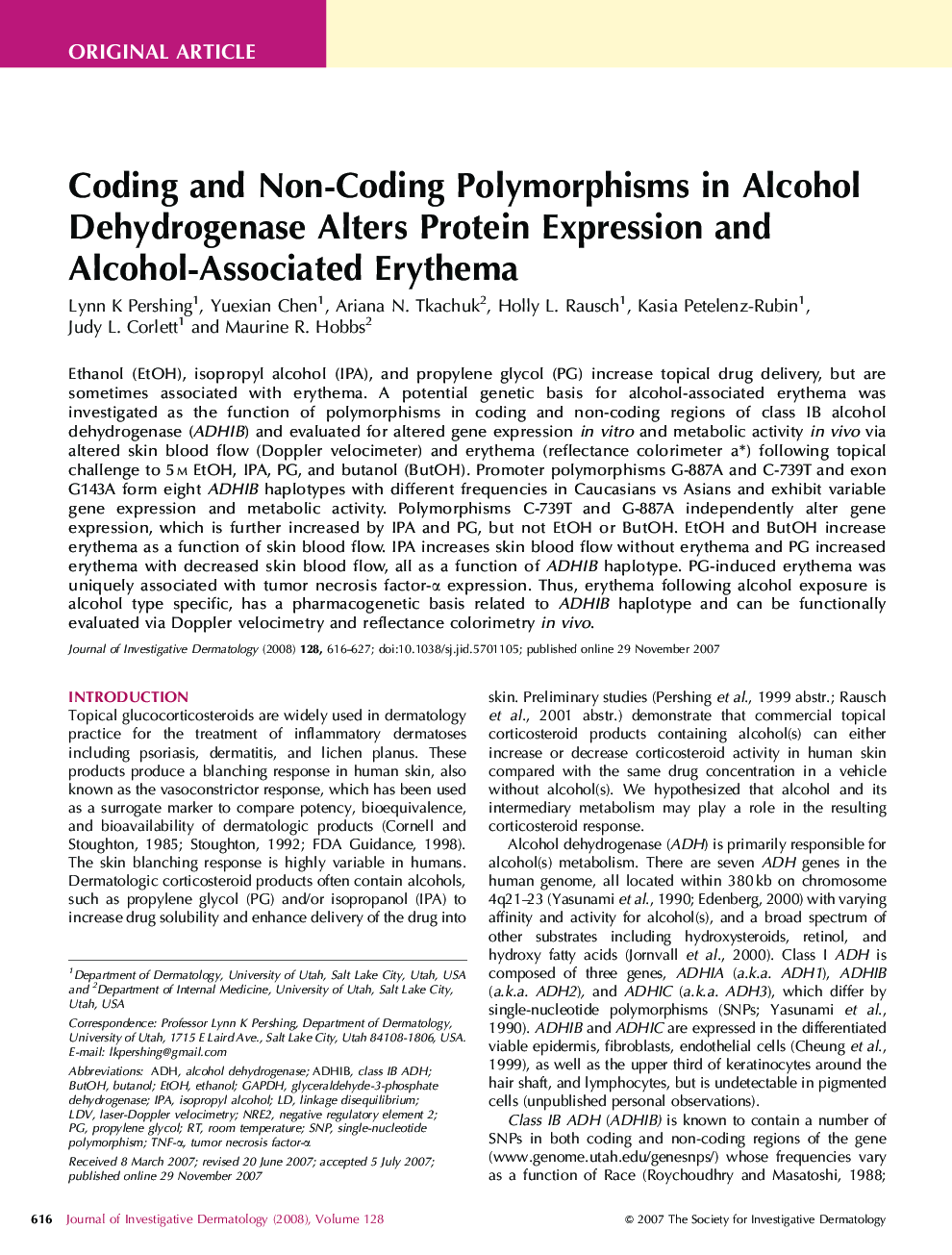| Article ID | Journal | Published Year | Pages | File Type |
|---|---|---|---|---|
| 3216704 | Journal of Investigative Dermatology | 2008 | 12 Pages |
Ethanol (EtOH), isopropyl alcohol (IPA), and propylene glycol (PG) increase topical drug delivery, but are sometimes associated with erythema. A potential genetic basis for alcohol-associated erythema was investigated as the function of polymorphisms in coding and non-coding regions of class IB alcohol dehydrogenase (ADHIB) and evaluated for altered gene expression in vitro and metabolic activity in vivo via altered skin blood flow (Doppler velocimeter) and erythema (reflectance colorimeter a*) following topical challenge to 5 M EtOH, IPA, PG, and butanol (ButOH). Promoter polymorphisms G-887A and C-739T and exon G143A form eight ADHIB haplotypes with different frequencies in Caucasians vs Asians and exhibit variable gene expression and metabolic activity. Polymorphisms C-739T and G-887A independently alter gene expression, which is further increased by IPA and PG, but not EtOH or ButOH. EtOH and ButOH increase erythema as a function of skin blood flow. IPA increases skin blood flow without erythema and PG increased erythema with decreased skin blood flow, all as a function of ADHIB haplotype. PG-induced erythema was uniquely associated with tumor necrosis factor-α expression. Thus, erythema following alcohol exposure is alcohol type specific, has a pharmacogenetic basis related to ADHIB haplotype and can be functionally evaluated via Doppler velocimetry and reflectance colorimetry in vivo.
